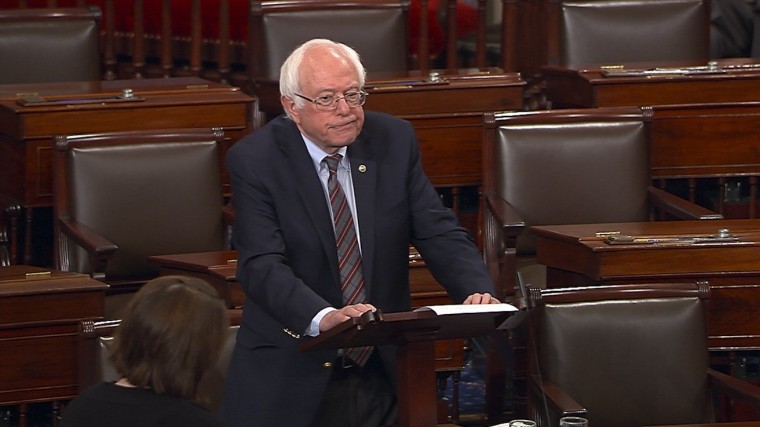For those who followed the debate over the Affordable Care Act's creation closely, Max Baucus is an important figure. The former Democratic senator from Montana was always on board with reforming the system, and he played an important role in getting the bill done, but Baucus prided himself on being moderate and pragmatic, resisting calls for some of the more progressive ideas on the table at the time.
With this in mind, it raised more than a few eyebrows last week when Baucus -- whom Bernie Sanders once said wouldn't support single-payer "in a million years" -- announced his belief that "the time has come" for a single-payer system.
This wasn't an isolated fluke. As the Washington Post reported yesterday, the "dam is breaking when it comes to the Democratic Party embracing government-funded health care."
Sen. Cory Booker (D-N.J.) became the fourth co-sponsor of Sen. Bernie Sanders's (I-Vt.) "Medicare for all" health-care bill Monday. In doing so, he joined Sens. Elizabeth Warren (D-Mass.) and Kamala D. Harris (D-Calif.).What do those four senators have in common? Well, they just happen to constitute four of the eight most likely 2020 Democratic presidential nominees, according to the handy list I put out Friday.
Soon after the story was published, Sen. Kirsten Gillibrand (D-N.Y.), who's also rumored to be interested in the 2020 presidential race, announced her support for the legislation, as did Sens. Jeff Merkley (D-Ore.) and Sheldon Whitehouse (D-R.I.).
I'm going to go out on a limb and predict the list of co-sponsors for Bernie Sanders' bill, which is due to be released this week, isn't done growing.
Sen. Chris Murphy (D-Conn.), meanwhile, is moving forward with a separate bill that would allow American consumers and business to buy into the Medicare system. As we discussed last week, this isn't single-payer, but because Medicare is a socialized system, it'd be a significant step in a progressive direction -- and offer an interesting alternative to lawmakers who aren't yet on board with Sanders' model. Vox added last week Murphy "casts his bill as an on-ramp to single-payer."
Sen. Brian Schatz (D-Hawaii), meanwhile, has an alternative of his own, which would allow Americans to buy into Medicaid. (Remember, "Medicaid for All" is an approach with plenty of champions, too.)
This is a great debate for health care advocates to have -- it'll matter a great deal the next time Democrats are in power -- and it's a reminder that in the wake of the 2016 elections, Democrats en masse have rejected calls to move the party to the right.
This reminds me a bit of the debate over marriage equality: support for the idea within the party was broad, but fears of a political backlash kept most Democratic officials quiet. But once a few brave souls jumped in and found that the water was fine, others were quick to follow.
